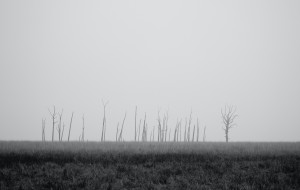I’m grateful.
The beauty of painful seasons and hard things is the gratitude that blossoms in the middle of the chaos.
We don’t see it immediately, or even perhaps feel it, but if our hearts are open and tender and expecting, thankfulness will push its way to the surface at its proper time.
Winter soil is barren, hard, and cold. We don’t see all of the activity going on below the layer of frozen fields and dusty, dry ground. Just like a farmer looking out on a field of nothingness, it seems that, when we look inside, there is an internal void when we’ve hit a hard winter.
We typically use words like “dead” or “barren” when referring to winter.
But what if we were to reframe the way in which we see our winter seasons – how we would describe them?
Instead of looking at winter as a time of death and barrenness- which may be the case as often things do die and there are very few signs of life on the surface- perhaps we can try and view this wilderness time differently? Rather than lifeless, what if we shifted toward a perspective of rest?
Elijah, when he was running from Jezebel, was despondent. He was at his very lowest. Depressed, overwhelmed, weary and burned out, Elijah ran until his body quit on him. He had nothing left. All around him, it looked like a dark winter season. After seeing God do the miraculous, it is difficult to understand this angst. And yet, his despair was unquestionable.
What was God’s response? How did God engage Elijah at this very moment in his life?
Did he chastise him and tell him to get back up on his feet? Did he rebuke him for running away? Did God try to get him worked up into a frenzy with a big “you can do it” speech? Did God ignore or marginalize Elijah?
No.
Rather, like a tender parent to a hurting child, God nurtured and cared for Elijah.
He came to a broom bush, sat down under it and prayed that he might die. “I have had enough, Lord,” he said. “Take my life; I am no better than my ancestors.” Then he lay down under the bush and fell asleep.
All at once an angel touched him and said, “Get up and eat.” He looked around, and there by his head was some bread baked over hot coals, and a jar of water. He ate and drank and then lay down again.
The angel of the Lord came back a second time and touched him and said, “Get up and eat, for the journey is too much for you.” So he got up and ate and drank.
1 Kings 19:3-8
God fed him. He provided water to drink, and he gave him the gift of sweet sleep. He even sent an angel to care for him. Elijah ate, drank, and slept. The mercy that God extended to Elijah is the same mercy I believe he extends to us when we are in the darkness of a winter season.
Winter seasons are seasons of rest if we allow ourselves to receive it. If we can surrender to the rest, I believe we will find the peace, the resilience…and the gratitude…to move forward.
This is so contradictory to our way of living. We are pushers. We charge straight through in spite of our exhaustion. And when we hit that heaviness of depression or grief or disillusionment, we either hide it away so no one can see it, or we expose ourselves and risk marginalization. We don’t often show each other the kind of grace that God extended to Elijah. We care more about results than the person. Perhaps we fear our own winter seasons are coming, and it drives us to run away…to isolate…to push hard and farther.
But…
God is so gracious.
It is his grace and mercy through these harsh winters that brings me tremendous gratitude.
Simplistically explained, even in its most vulnerable stage of development, a tiny seed germinates into a sprout. The germination process is all done underground, hard at work to produce that initial sign of life.
Underneath the surface of our painful and hard seasons is a process of germination that will eventually produce a sprout. Winter is for rest. While we rest, God is feeding us and providing water for us to drink. We eat, drink, and sleep, and God does the work.
So he got up and ate and drank. Strengthened by that food, he traveled forty days and forty nights until he reached Horeb, the mountain of God.
1 Kings 19:8
God’s provision of rest and nourishment when we are in those broken and barren seasons gives us the strength to make the next journey and to take the next step forward. After Elijah had rested, and after he had sufficiently been fed and his thirst quenched, he was strong enough for a forty-day and forty-night journey to the mountain of God. I find this nothing short of a beautiful illustration of how sufficient God’s provision and his care is for us. Seasons of rest are not the end of the story. In fact, seasons of rest…those winters in our lives…are the precursor for hearing God’s voice…for approaching the mountain of God. We are not prepared for that next step until we have adequately rested in God’s grace and mercy.
I’m grateful.
Joel and I have been walking through a winter season. It has felt like a long one, too. Typically, we get to enjoy the beauty of fall as the seasons change, but ours has felt more like a swift jump from summer sunshine to the bitter cold of winter, with no pretty foliage to prepare us in between. And while we’ve asked God a number of times “why?”, we are slowly beginning to see that God is even here in the winter. That maybe he is calling us to rest. That perhaps this time is an opportunity to receive his grace and his mercy. I don’t love hard seasons. I’m not crazy. But the older I get, the more I am recognizing that it is through these hard seasons that we encounter God in a deeper and more meaningful way.
This season is producing the small and tender sprouts of thankfulness in our lives. Thankful, not for pain and hurt and disappointment, but thankful for God’s presence and faithfulness through the pain and hurt and disappointment.
Winter is for rest.
And my heart is overwhelmed with gratitude…for God’s precious hand…for his mercy and grace.
The Lord is faithful to all his promises and loving toward all he has made. The Lord upholds all those who fall and lifts up all who are bowed down. The eyes of all look to you, and you give them their food at the proper time. You open your hand and satisfy the desires of every living thing.
Psalm 145:13-15

